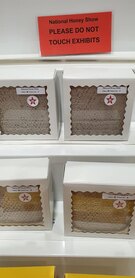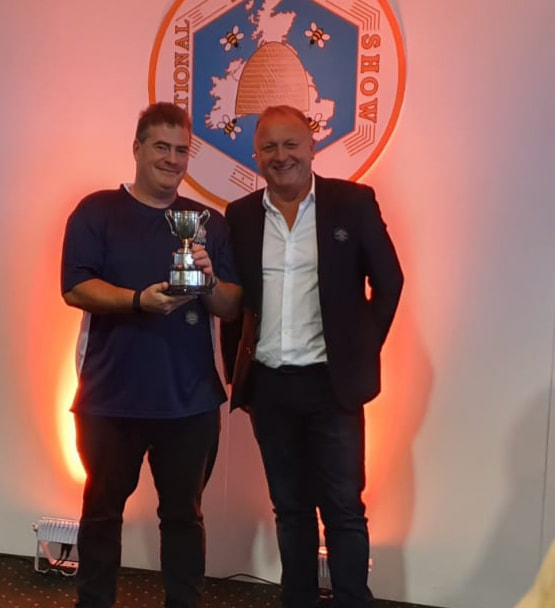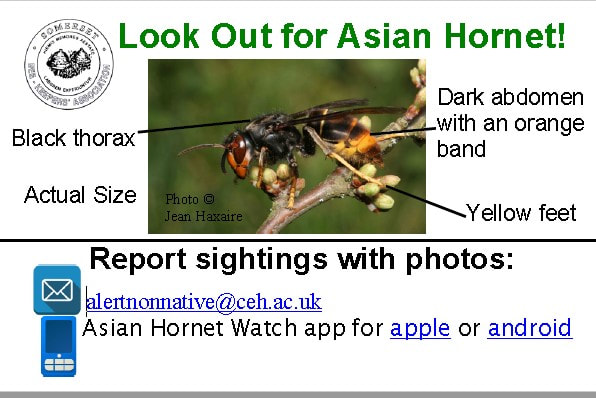 Mark and Christine Gullick (Burnham-on-Sea division) triumphed at the National Honey Show at the weekend when they were awarded a trophy and lots of prize cards. They received the Burnett cup after being placed first with their two section squares (photo left) in the open class and were placed in 15 of the 22 classes they entered. Their success reflects their skills both as beekeepers and the care and hard work they put in over the past season to produce so many very high quality exhibits. Their results: 1st for 2 section squares in the open class and the David Burnett cup. 1st for Natural crystallised honey in the open class 1st for soft set in the NHS class. 2nd for honey for sale display open class 2nd for beeswax flowers 2nd for a honey jar label 3rd for a beeswax cake in the NHS class 3rd for 1 section square in the NHS class 3rd for a frame suitable for extraction in the open class 4th for soft set honey in the open class Vhc in a "for sale" display of honey (extracted comb and beeswax) Hc in the open light honey class Hc in the three different types of honey class Hc in the two jars of dark honey NHS class Hc in the display of home produced products Anne Pike, SBKA Chairman All beekeepers who are registered on BeeBase should have received the following email with the good news about the Asian hornet sighting in Dorset. But it's worth flagging up this message to all visitors to our website at this critical time of the year. If you need some back-up, Somerset's Asian hornet action team is ready to help: [email protected] and we've published lots of information and resources in our Asian hornet section.
BeeBase writes: "On Friday 4th October a nest was destroyed following the confirmed sighting of an Asian hornet near Christchurch, Dorset after it was reported by a member of the public. It is imperative that any Asian hornet colonies in the UK are detected and destroyed before queens are released. This is the time of year when colonies have been previously detected and we depend on alert beekeepers and members of the public to report sightings. As we have an abundant insect population, Asian hornets may not just be found in apiaries, they could also be at places where insects congregate – stands of ivy, for example, and on decaying fruit. At any sunny, warm period, take a little extra time – 20 minutes or more - to look around your apiary, any ivy and garden generally to help early detection of this alien insect. What Else Can I Do?
|
Archives
March 2024
Categories
All
|
Somerset Beekeepers Association Charity © 2021 Registered CIO Charity 1206483
Affiliated to the British Beekeepers Association
Click here to view our Privacy Policy
Affiliated to the British Beekeepers Association
Click here to view our Privacy Policy


 RSS Feed
RSS Feed
